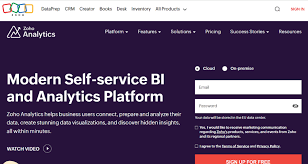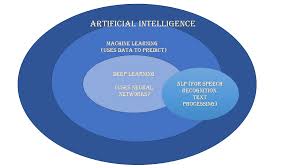Big Data Analytics Solutions: Transforming Business Insights
In today’s data-driven world, big data analytics solutions have become essential for businesses aiming to leverage vast amounts of information to gain competitive advantages. By harnessing the power of big data, organisations can uncover hidden patterns, market trends, and customer preferences that drive strategic decision-making.
Understanding Big Data Analytics
Big data analytics refers to the complex process of examining large and varied data sets to uncover valuable insights. These insights help organisations make informed decisions, optimise operations, and enhance customer experiences. The key components of big data analytics include data collection, storage, processing, and analysis.
The Importance of Big Data Analytics Solutions
With the explosion of digital information from sources such as social media, IoT devices, and online transactions, businesses are inundated with data. Big data analytics solutions enable companies to:
- Enhance Decision-Making: By analysing historical and real-time data, organisations can make more accurate predictions and informed decisions.
- Improve Operational Efficiency: Identifying inefficiencies through data analysis helps streamline processes and reduce costs.
- Personalise Customer Experience: Understanding customer behaviour allows businesses to tailor products and services to individual needs.
- Identify Market Trends: Analysing market trends helps companies stay ahead of the competition by adapting strategies proactively.
Main Technologies Behind Big Data Analytics
The effectiveness of big data analytics solutions relies on several key technologies:
- Data Warehousing: Centralised repositories store vast amounts of structured and unstructured data for analysis.
- Machine Learning Algorithms: These algorithms identify patterns within large datasets without explicit programming instructions.
- Cloud Computing: Cloud platforms provide scalable resources for storing and processing massive datasets efficiently.
- NoSQL Databases: Designed for handling unstructured or semi-structured data at scale with high performance.
The Future of Big Data Analytics Solutions
The future looks promising as advancements in AI continue enhancing big data analytics capabilities. Automation will play a crucial role in simplifying complex processes while improving accuracy. Additionally, edge computing is expected to complement cloud-based solutions by bringing computation closer to the source—reducing latency issues associated with remote servers.
The integration between AI technologies such as natural language processing (NLP) or computer vision further expands possibilities within various industries—from healthcare diagnostics using image recognition algorithms up through sentiment analysis applications monitoring public opinion shifts across social media platforms worldwide!
Conclusion
The transformative potential offered by modern-day big-data analytic tools cannot be overstated: they empower businesses not only survive but thrive amidst ever-changing landscapes driven largely through technological innovation itself! As more organisations embrace these powerful tools moving forward into tomorrow’s digital economy—the opportunities available will grow exponentially alongside them!
Understanding Big Data Analytics Solutions: Techniques, Types, and Key Concepts
- What are data analytics solutions?
- What are Big Data analytics techniques?
- What are the 4 types of data analytics?
- What are the big data solutions?
What are data analytics solutions?
Data analytics solutions encompass a range of tools and techniques used to interpret, analyse, and derive meaningful insights from vast amounts of data. These solutions involve processes such as data collection, cleansing, processing, and visualisation to uncover patterns, trends, and correlations within datasets. By utilising advanced algorithms and technologies like machine learning and artificial intelligence, data analytics solutions enable businesses to make informed decisions, improve operational efficiency, personalise customer experiences, and gain a competitive edge in today’s data-driven world.
What are Big Data analytics techniques?
Big Data analytics techniques encompass a range of methods and tools used to extract valuable insights from vast and diverse datasets. These techniques include data mining, machine learning, predictive analytics, text mining, and sentiment analysis. Data mining involves discovering patterns and relationships within data, while machine learning algorithms enable systems to learn from data and make predictions. Predictive analytics uses historical data to forecast future trends, while text mining analyses unstructured text data for valuable information. Sentiment analysis, on the other hand, evaluates opinions and emotions expressed in textual data. By employing these Big Data analytics techniques effectively, businesses can uncover actionable insights that drive informed decision-making and strategic planning.
What are the 4 types of data analytics?
In the realm of big data analytics solutions, understanding the four main types of data analytics is crucial for businesses seeking to extract meaningful insights from their vast datasets. These four types include descriptive analytics, which focuses on summarising historical data to provide context; diagnostic analytics, which delves into identifying patterns and root causes of events; predictive analytics, which uses statistical models to forecast future trends or outcomes; and prescriptive analytics, which goes a step further by recommending actions based on the insights gained from the data analysis. Each type plays a distinct role in helping organisations make informed decisions and drive strategic initiatives effectively in today’s data-driven landscape.
What are the big data solutions?
Big data solutions encompass a range of technologies and strategies designed to manage, process, and derive insights from vast volumes of data. These solutions typically involve tools such as data warehouses, analytics platforms, machine learning algorithms, and cloud computing services. By leveraging big data solutions, organisations can effectively collect, store, analyse, and visualise large datasets to extract valuable information that can drive informed decision-making and business growth. The versatility and scalability of big data solutions make them essential for businesses looking to stay competitive in today’s data-driven landscape.






